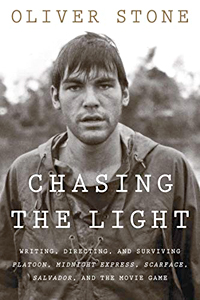Social psychosis is widespread. In the words of the British psychiatrist, R. D. Laing, “The condition of alienation, of being asleep, of being unconscious, of being out of one’s mind, is the condition of the normal man.”
He was not referring to raving, drooling, hitting-your-head-against-the-wall lunacy but a taken-for-granted acceptance of a world long teetering on the edge of nuclear extinction, to take the most extreme example, but surely only one of many. The insouciant acceptance and support of psychotic rulers who promote first-strike nuclear war is very common. First strike nuclear policy is United States policy.
I recently wrote an article about the dangers of the fourteen U.S. Trident submarines. These subs constantly cruise under the oceans carrying 3,360 nuclear warheads equivalent to 134,400 Hiroshima bombs. All are on first strike triggers. And of course these are supplemented by all the land and air based nukes. My point was not very complicated: now that the United States government has abrogated all nuclear weapons treaties and continues to escalate its war against Russia in Ukraine, we are closer to nuclear annihilation than ever before.
Continue reading “How So Many Learned To Stop Worrying and Love the Nukes”




